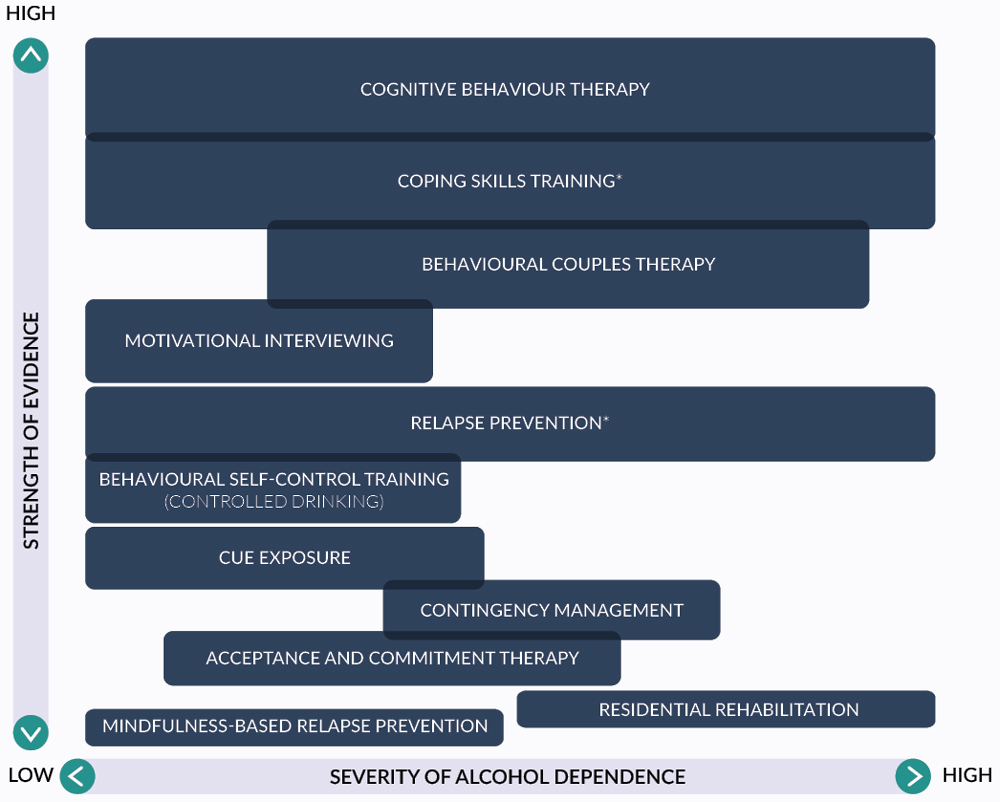Choosing Psychosocial Interventions
The choice of psychosocial intervention for alcohol dependence will differ on the patient’s presentation and needs, and available resources. People presenting to alcohol and other drug clinics may have different treatment needs from those presenting to primary care settings.
The principles of treatment selection and care planning are described in Chapter 4 and Chapter 5. Important components of treatment interventions for people with problematic drinking includes:
- Assessment and feedback
- Goal setting: abstinence, moderation, and reduced drinking
- Case formulation and treatment plan
- Therapeutic alliance, engagement, and retention in treatment
- Relapse prevention
- Follow-up and aftercare
Basic counselling ‘micro-skills’, including empathy, optimism and a non-judgemental attitude, and strong interpersonal skills are associated with better retention in treatment and indirectly with better treatment retention. Central to provision of any psychosocial intervention is a strong bond and therapeutic alliance between the patient and clinician.
Decisions concerning choice of psychosocial treatment should be guided by the principles of patient-centred care. While much research effort has gone into trying to understand how best to match patients to particular psychosocial treatments, no clear evidence has emerged to offer specific guidance. Recommendations rest largely on the strength of accumulated evidence for different psychosocial interventions. However, there is clear evidence that patients with an alcohol abstinence goal tend to have better treatment outcomes. Studies that have examined the additive efficacy of alcohol pharmacotherapy also indicate that outcomes are improved when psychosocial intervention is combined with medication (covered in Chapter 10). A brief diagrammatic summary of the evidence for different psychosocial interventions is provided in Figure 9.1.
FIGURE 9.1: Diagrammatic summary of evidence for psychosocial interventions.

Note: Box height reflects number of studies with alcohol-dependent populations. *Intervention is a core component of Cognitive Behaviour Therapy.